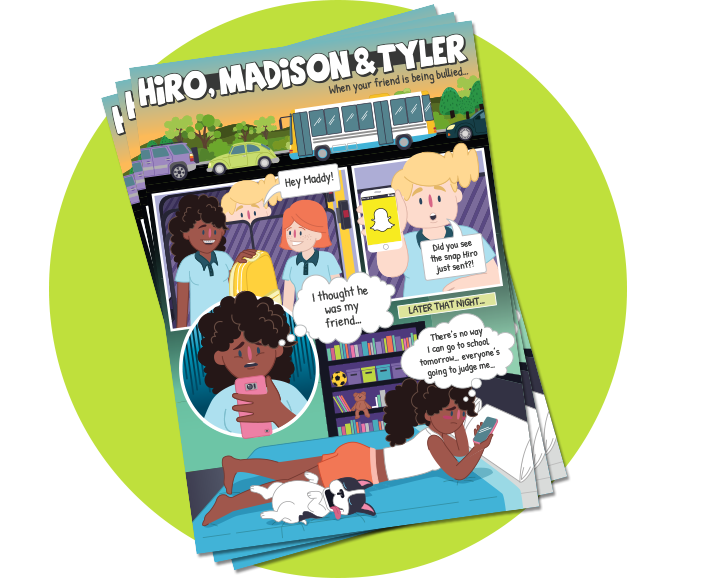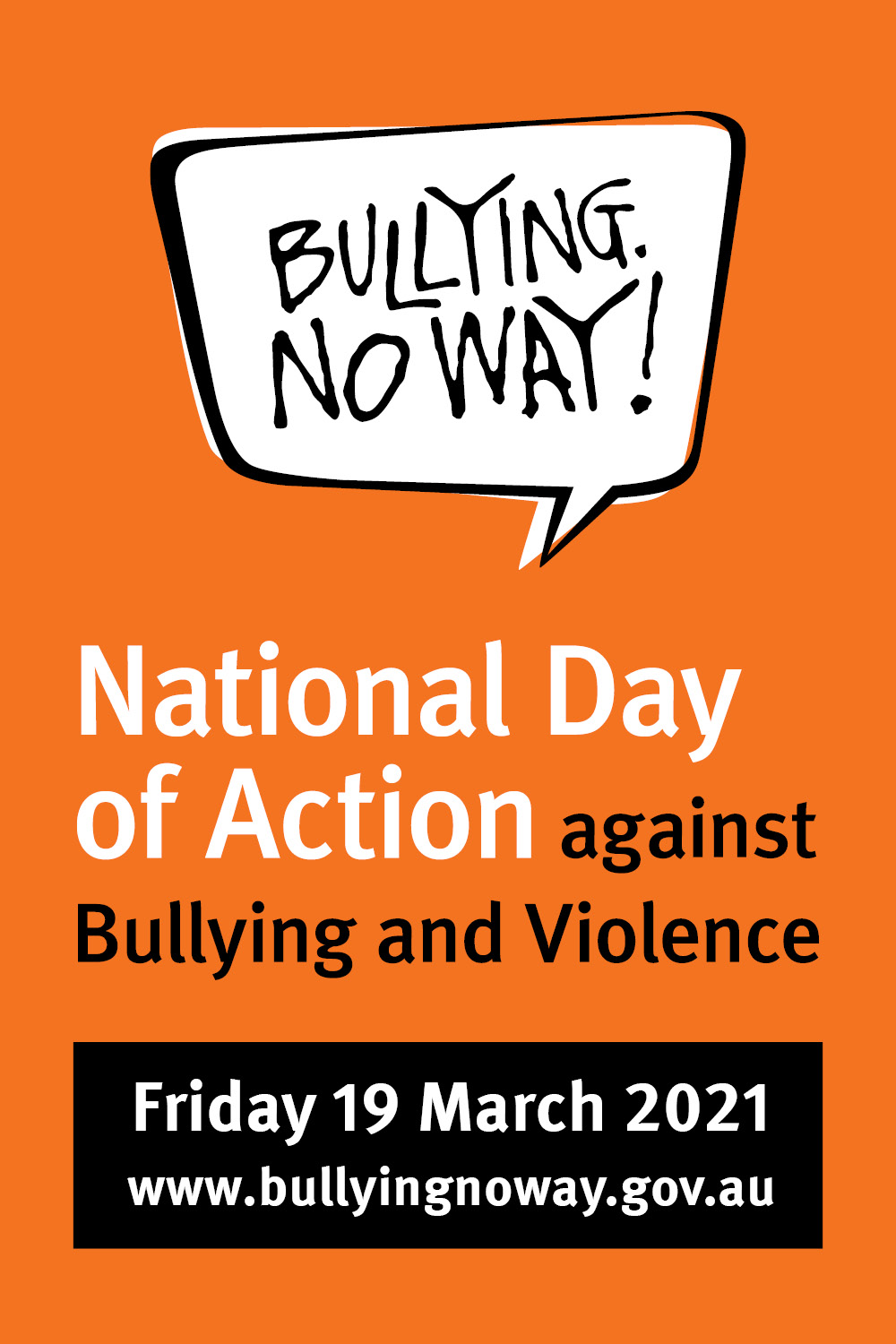- Mental health
- What to do about bullying
What to do about bullying
Let's take a look at what bullying is, and how to change bullying behaviour.
In 2020 we experienced a 4% decrease in face-to-face bullying complaints to Kids Helpline, which may be due to COVID-19 keeping kids isolated at home. But with schools back open, it's more important than ever to make sure those figures don't rise again.
"It is important that communities and parents work together to provide an environment that is safe from harassment, aggression, violence and bullying," says yourtown CEO Tracy Adams.
March 19 is the National Day of Action against Bullying and Violence.
This is a day for schools, students and the community to say, "Bullying. No Way!" and take a stand together.
"The National Day of Action is an important opportunity to reaffirm to adults to be positive role models within their family unit as bullying or violence in any form can have immediate and long-term effects on children and young people. Young children bystanders may feel uncomfortable witnessing bullying or violence but may be unsure of how to stop it from happening," she says.
What is bullying?
It's important to understand what bullying is and is not, because strategies to address bullying are different from those used to address conflict, mean moments, and rudeness.
Bullying is...
Aggressive behaviour.
Repeated behaviour.
Based on a power imbalance, real or perceived.
(A power imbalance is when one person is older, bigger, stronger, smarter, has more control or influence, or a position of authority.)
Bullying is not...
Unintentional, e.g. accidental.
Simple conflict – with no power imbalance.
Respectful feedback, e.g: “It’s important to let people make their own decisions about what game to play,” vs. “You’re always so bossy!”
Natural consequences in socialising, e.g. if you gossip about people behind their back, they won’t trust you.
Bystanders
Bystanders are witnesses to bullying who do not intervene.
This may be because:
- They think someone else will intercede
- They don’t know what to say/do
But witnessing bullying hurts bystanders too.
Bystanders can often make bullying worse or encourage it, e.g. laughing
Bystanders have a responsibility to be upstanders.
Upstanders
To be an upstander, kids can use these tactics:
- Respectfully challenge the bullying, e.g. "We don’t do that here."
- Show disapproval, e.g. frown at mean jokes
- Interrupt by engaging with the person being bullied, e.g. "Hey Jack, there you are!"
- Give the person being bullied an excuse to leave, e.g. “The teacher is looking for you,” or, “Hey, can you help me with something for a sec?”
- Offer support. Do this once the person is safe, e.g. "I saw what happened at lunch. It's not ok for them to act that way! Are you ok?"
- Report it. If possible, do it together. Being supported in your version of events can make a big difference to someone feeling hopeless.
Comic: When your friend is being bullied
When Hiro shares a photo of Maddy online, he thinks it's just a laugh.
Until he comes to school the next day and finds he has a target on his back...
Sound familiar? It's a story we hear all too often at Kids Helpline!
What can parents and communities do to change bullying behaviour?
Remember, bullying behaviour hurts everyone, including the people being bullied, those witnessing the bullying and those doing the bullying.
The good news is, behaviour is not identity or destiny. Bullying behaviour can change! Children who bully can benefit from:
- Learning emotional self-regulation
- Developing empathy
- Learning social skills, e.g. joining through play rather than seeking a laugh by picking on others
- Learning problem solving skills, e.g. responding in a different way which results in making more friends
- Learning the benefits of “power with” (as opposed to “power over” someone), ie. when people are scared of you, they will do what you want when you’re around. When people genuinely like and care for you, they will do what is best for you most of the time; this is “power with”. It is a human need to have meaningful social connections.
For more information about bullying, check out Kids Helpline’s full range of comics, tipsheets and advice at kidshelpline.com.au
What would you do if your child was being cyberbullied?
Check out our FREE cyberbullying training for parents, carers and grandparents.
About yourtown...
We’re a community funded organisation that tackles issues like youth unemployment and mental health, and takes on issues like domestic and family violence.
Stay in touch
Show your support and get the latest news and updates on our yourtown Australia Facebook page.

